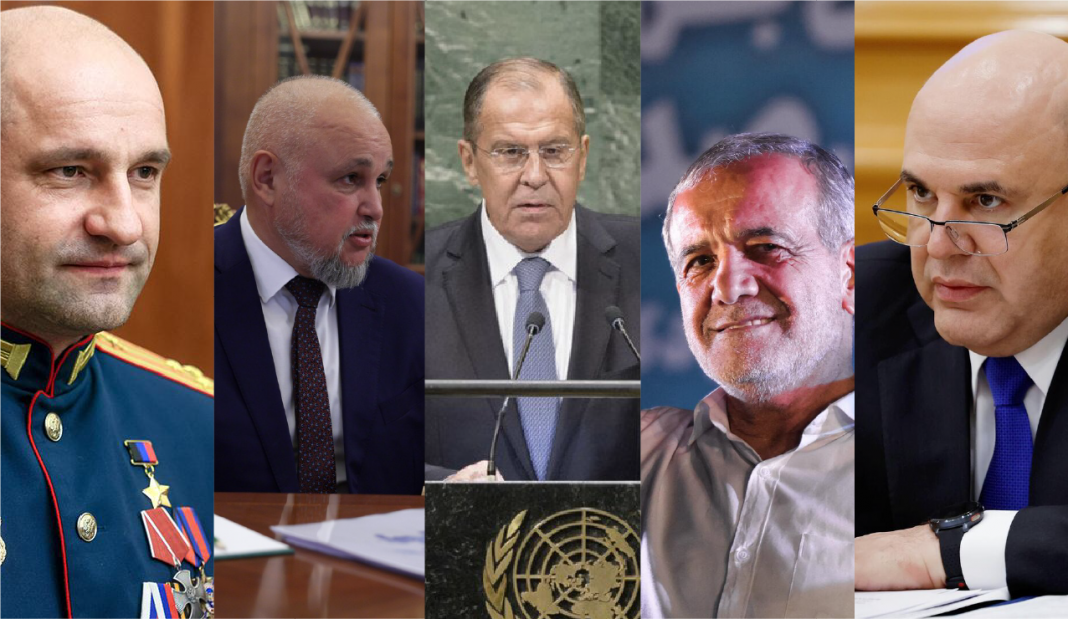In this digest, Ascolta presents a comprehensive analysis of key political, economic and social developments in Russia that have a direct impact on both the country’s domestic processes and international relations. We look in detail at how Russian government decisions, economic developments and public sentiment are shaping the political agenda and affecting domestic stability.
Particular attention is paid to the implications of these events for Russia’s foreign policy, its relations with key international players, and possible changes in the global geopolitical landscape.
This Content Is Only For Subscribers
OVERVIEW OF OFFICIAL EVENTS
- Russian President
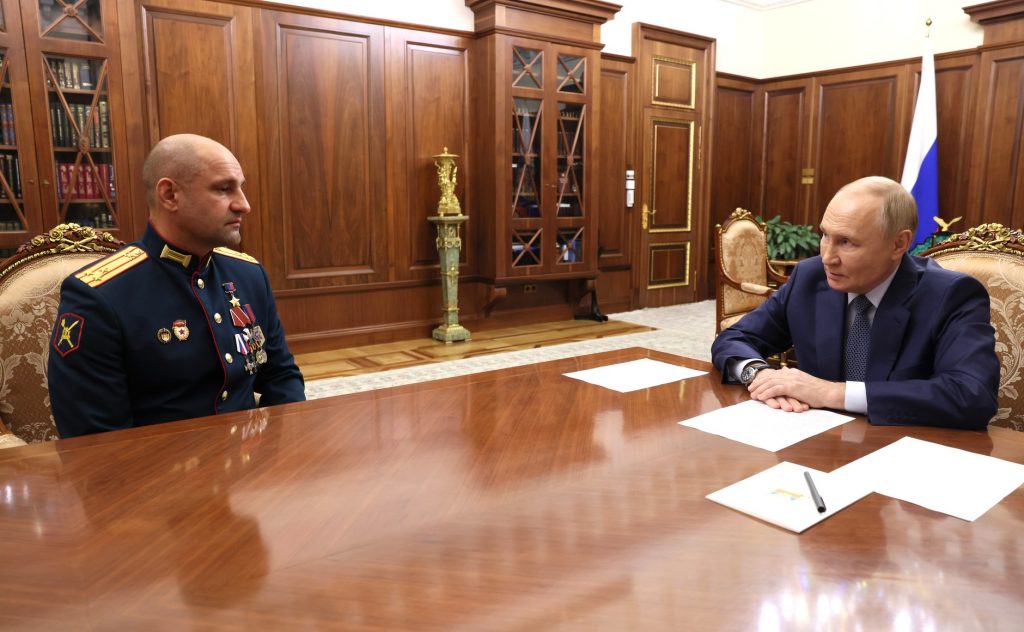
During the past week, the Kremlin did not show much activity in terms of public events, official meetings or working visits. One of the main information occasions was the celebration of the so-called day of the ‘reunification of the new regions of the Russian Federation’ [the self-proclaimed ‘DNR’ and ‘LNR,’ as well as temporarily occupied parts of Zaporizhzhia and Kherson oblasts]. On this occasion, the Russian president made a video address to the residents of the occupied territories. One of the main messages of the address was the thesis of ‘support’ and ‘liberation’: “We did not abandon our brothers and sisters, we tried to reach a peaceful resolution of the most difficult conflict. You know how these negotiations ended: with lies, forgery and deceit on the part of Western elites, who have turned Ukraine into their colony, into a military bridgehead aimed at Russia.
At the same time, the Kremlin decided to demonstrate the high level of integration of the occupied territories into the country’s socio-political system: on 2 October, Vladimir Putin held a meeting with the former commander of the ‘Sparta’ battalion. Artem Zhoga, a former commander of the Sparta battalion [a terrorist group operating under the self-proclaimed DNR], and appointed him as presidential representative in the Urals Federal District. This event is also important in terms of strengthening the young military wing in the Russian president’s entourage.
Also last week, Vladimir Putin held a meeting with Minister of Energy Sergey Tsivilev, discussing the current situation in the fuel and energy complex of the Russian Federation. In particular, they discussed the process of introducing two new areas: systemically important territorial grid organisations, as well as the implementation of the law on mining activity, which, according to the minister, has already been legalised and requires the payment of taxes.
In addition, the Kremlin also paid much attention to the topic of education. In the context of celebrating World Teachers’ Day, Vladimir Putin held a number of events demonstrating the Kremlin’s increased attention to education (it is important to recall that this issue is regularly raised by the Russian president and is positioned as strategically important for the country’s further development). In particular, Putin visited the Rudnevo industrial park, where he took part in the opening of the first practical training site for colleges in Moscow. He also held an online meeting with the finalists of All-Russian professional competitions in the field of education. In addition, the Russian president made a video message in which he congratulated all teachers in Russia: “Russia has always been famous for its strong pedagogical school. People of various ages and professions remember their teachers and mentors with warmth and gratitude, their heartfelt participation in our destiny. And your example, I am sure, inspires many young people, teenagers still, to choose a pedagogical speciality for themselves. Such continuity of generations, preservation and multiplication of traditions, which we are rightfully proud of, allow us to confidently go forward, to develop our education system on a sovereign basis, combining the best experience of pre-revolutionary and Soviet school and modern approaches’.
On Friday, 4 October, a traditional meeting with the permanent members of the Security Council was held. This time it was devoted to the measures on formation of the system of international settlements. In addition to the usual composition of the Security Council, the meeting was also attended by Central Bank Chairman Elvira Nabiullina.
In the context of international contacts, the Russian president held a telephone conversation with President Emomali Rakhmon of the Republic of Tajikistan. However, the reason for the conversation was to congratulate Rakhmon on his birthday, which he celebrates on 5 October. Following the conversation, the two sides also said that they touched upon a number of practical issues in connection with the upcoming meeting of the CIS Council of Heads of State in Moscow on 8 October.
- Ministry of Foreign Affairs of the Russian Federation
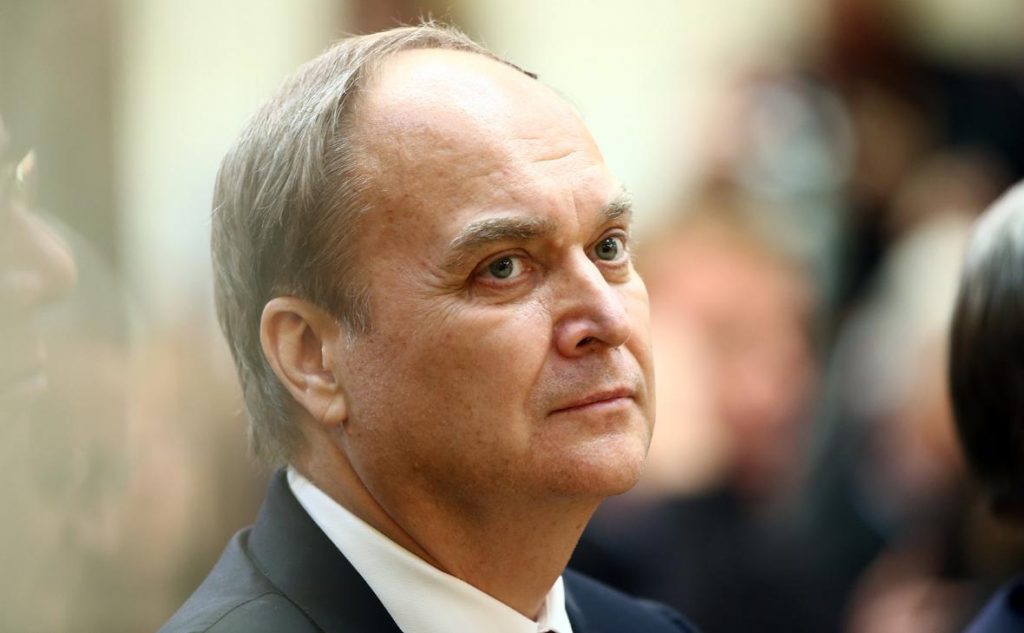
Last week saw a number of important events at the diplomatic level, which affected different areas of Russia’s foreign policy activities. Below are the key areas that may be further developed in the near future:
- On 30 September, Mikhail Bogdanov, the President’s representative for the Middle East and Africa, met with Randou Kassis, a representative of the leadership of the ‘Astana Platform’ of the Syrian opposition. During the conversation, an in-depth exchange of views took place on the development of the situation in and around Syria in the context of the sharp aggravation of the overall situation in the Middle East.
- On 30 September, Mikhail Bogdanov, Presidential Envoy for the Middle East and Africa, met with Aristide Tapsoba, Ambassador of Burkina Faso to Moscow. During the meeting they discussed topical issues of further strengthening of bilateral relations, intensification of political dialogue, as well as preparations for the ministerial conference of the Russia-Africa Partnership Forum to be held in Sochi in November this year. In this context, it is worth noting that on 26 and 28 September in New York, Russia signed joint statements with Burkina Faso and Mali on the former’s non-deployment of weapons in space (given the serious concerns of the United States and Europe about Moscow’s deployment of weapons in space, which had previously been repeatedly stated by official speakers, this fact can be seen as a demonstration of Moscow’s readiness to compromise on this issue).
- On 1 October, the Russian Foreign Ministry condemned the invasion of Lebanon by the Israeli army and expressed solidarity with the leadership and people of Lebanon, which had been subjected to armed aggression.
- On 2 October, Russian Foreign Minister Sergey Lavrov met with Khaled Al-Maawali, Chairman of the Consultative Council of the Sultanate of Oman, who is on an official visit to Moscow. It is noted that during the meeting the parties expressed interest in continuing foreign policy coordination in the interests of early resolution of acute regional and international crises exclusively by political and diplomatic means, taking into account the legitimate interests of the parties involved and in accordance with the fundamental provisions of the UN Charter.
- On 4 October, Sergei Lavrov met with Acting Afghan Foreign Minister Amir Mottaki in Moscow. It is noted that during the meeting it was emphasised that Russia and Afghanistan are mutually interested in maintaining trusting political relations and building up mutually beneficial trade and economic cooperation with a special emphasis on working out projects in the spheres of energy and agriculture.
- On 4 October, Sergei Lavrov met with Ambassador of the Republic of Armenia to Russia Gurgen Arsenyan. Details of the meeting are not disclosed, but it is noted that some issues of Russian-Armenian relations and regional agenda were discussed.
- On 4 October, Sergey Lavrov met with the new Ambassador Extraordinary and Plenipotentiary of the Republic of Azerbaijan Rahman Mustafayev, who started his duties.
- On 5 October, the Acting Head of the Russian Delegation to the Vienna Negotiations on Military Security and Arms Control, Yury Zhdanovoi, addressed the 1089th plenary session of the OSCE Forum for Security Co-operation. The speech focused on the rationale behind Russia’s ongoing [so-called] ‘SWO’ against Ukraine. It stresses that the main goal of the aggression is the ‘demilitarisation’ and ‘denazification’ of Ukraine. Russia condemns the West, in particular the US and its allies, for its policy of hegemony and interference in the affairs of sovereign states, which, according to Zhdanovy, has led to global crises, including the current conflict in Ukraine. The text also condemns the supply of weapons, including cluster munitions, to Ukraine and claims that the West is assisting the ‘Ukrainian regime’ which allegedly uses terror methods against Russia. “Confrontation and hegemonism are incapable of solving any global problem, all the more so in the sphere of political-military security. They only artificially restrain the objective process of forming a democratic multipolar world order.”
- On 5 October, Russian Ambassador Extraordinary and Plenipotentiary to the United States Anatoly Antonov completed his diplomatic mission in the United States and returned to Moscow. Antonov had headed the Russian embassy in the United States since August 2017. Prior to that, he worked in the Russian Foreign Ministry’s Department for Security and Disarmament Affairs. From 2011-2016, he served as Russia’s deputy defence minister and then was deputy foreign minister. Antonov is under international sanctions for supporting Russia’s invasion of Ukraine. Several possible candidates for the post of Russia’s new ambassador to the United States are being discussed, with Sergei Ryabkov being considered among them. However, it is likely that the approval of a new ambassador looks unlikely before the inauguration of the newly elected US president.
- Government
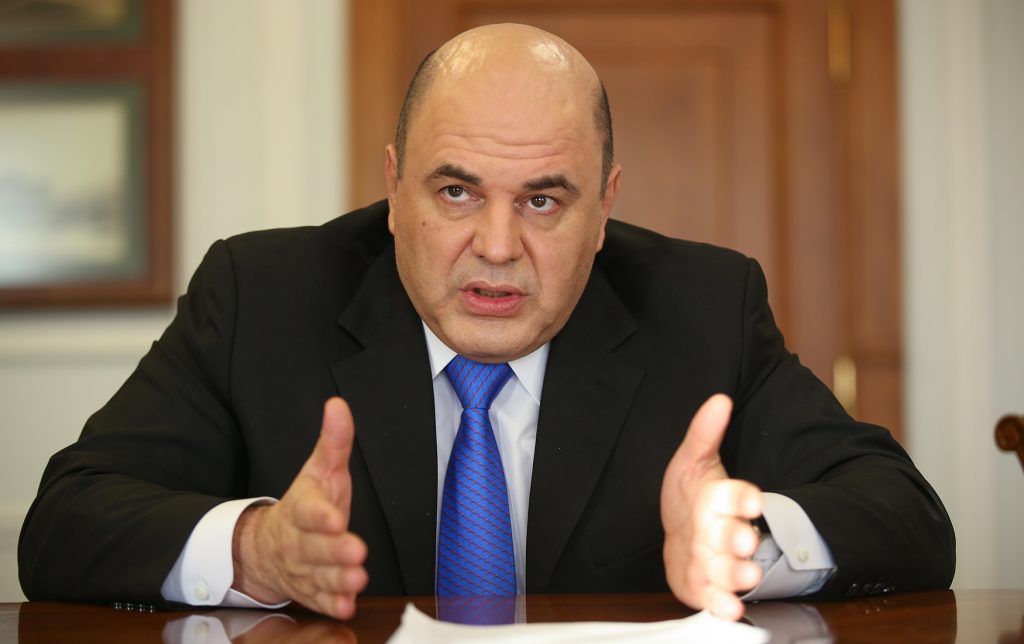
On 30 September, Russian Prime Minister Mikhail Mishustin paid a two-day visit to Armenia, where he took part in the plenary session of the Eurasian Economic Forum 2024 ‘Digitalisation in Modern Realities – An Imperative for Ensuring the Four Freedoms’, as well as in an enlarged meeting of the Eurasian Intergovernmental Council.
The participants of the meeting of the Eurasian Intergovernmental Council discussed topical issues of deepening integration within the Eurasian Economic Union, including the functioning of the internal market, development of cooperation in the industrial, transport, customs and tariff, agricultural and energy spheres, as well as considered the main directions of industrial cooperation within the EAEU until 2030.
Also, on the margins of the Eurasian Intergovernmental Council Mikhail Mishustin met with Prime Minister of Belarus Roman Golovchenko.
On 3 October, a regular meeting of the Russian Government was held in Moscow. According to the available information, the meeting discussed the results of the visits to Iran (29 September) and Armenia (30 September), the extension of the preferential rate of income tax for enterprises of the radio-electronic industry, as well as assistance to industrial enterprises in creating new own products.
REVIEW OF PUBLICATIONS AND FOREIGN POLICY EVENTS
- Russia in the context of escalation in the Middle East
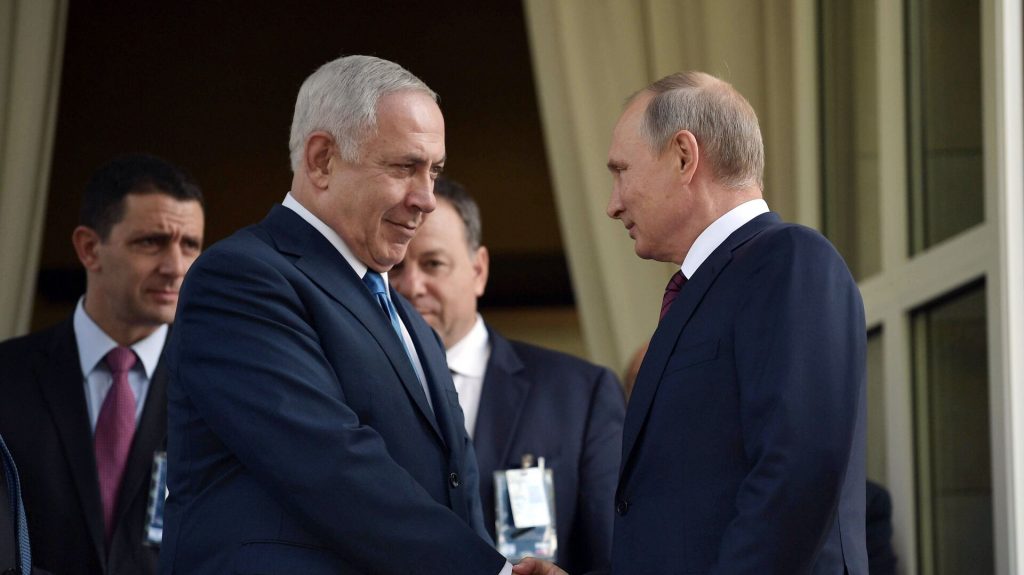
After the escalation of the situation in the Middle East and the Iranian missile attack on Israeli territory, many observers drew attention to the fact that the attack itself turned out to be rather ‘effective’ and that the Israeli air defence system failed to cope with many targets. At the same time, a number of sources said that to achieve such an effect, Iran apparently enlisted the support of outside forces to help with satellite targeting or bypassing Israeli air defences. At the same time, several Ascolta sources said that such support was indeed provided by Russia, which is trying to demonstrate its influence on the processes in the Middle East region.
It is worth noting that a few days after the Iranian attack on Israeli territory, the American edition of The New York Times reported that Iran asked Russia to help with satellite reconnaissance in connection with preparations for a possible Israeli strike. According to two Iranian officials familiar with the war planning and not authorised to speak publicly, Iran has asked Russia for cooperation with satellite reconnaissance ahead of a possible Israeli response.”
It is noteworthy that on 3 October, a number of Syrian and Turkish sources reported that Israel had struck the Russian Hmeimim airbase in Syria. Later the German edition Bild also wrote about it. The material notes that near the only Russian airbase in Syria there was a series of strong explosions. Presumably, Israel thus destroyed a batch of weapons that were going to be delivered from Iran for Hezbollah through the Russian base. Bild notes that Israel has been trying to disrupt the delivery of weapons to Hezbollah through Syria for many years with the help of airstrikes. However, until now, the Russian military base has not been the target of these attacks.
“The Israeli attack targeted a warehouse inside Russia’s Hmeimim base. Israel bombed the base an hour after an Iranian Qeshm Fars Air aircraft arrived there,’ wrote Abdullah al-Moussa, a journalist for opposition Syrian broadcaster Syria TV.
- Russian Foreign Minister Sergei Lavrov’s article ‘UN: once again to be a centre for harmonising the actions of nations’
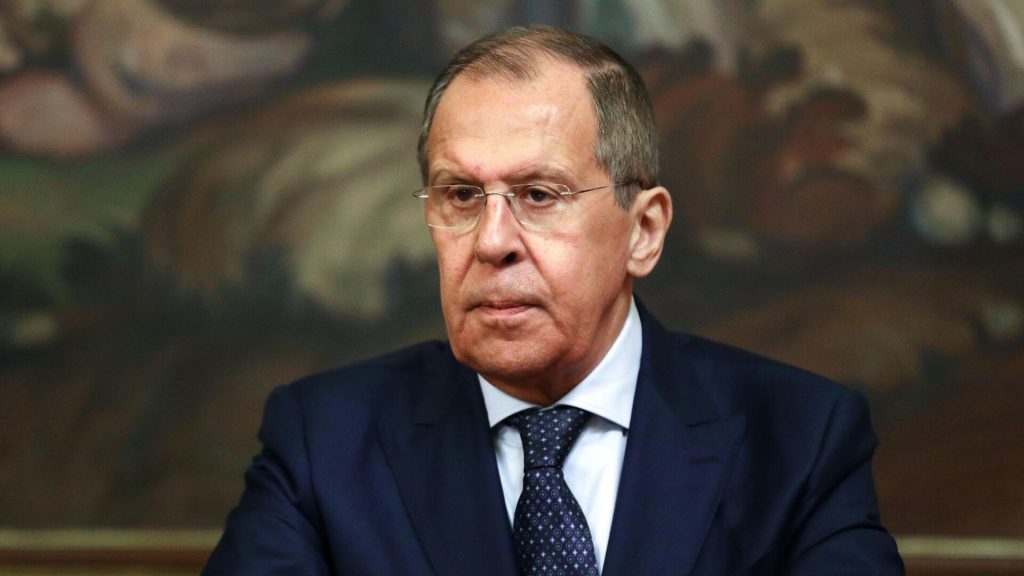
On 4 October, the journal ‘Russia in Global Politics’ published an article by Russian Foreign Minister Sergei Lavrov entitled ‘The UN: once again to be a centre for coordinating the actions of nations’. In it, the Russian diplomat discusses the prospects for UN reform through the prism of the results of the recent general political discussion of the 79th session of the UN General Assembly.
Lavrov refers to the UN Charter, once again repeating the thesis that Ukraine violates the rights of the Russian-speaking population, and believes that Russia’s actions are aimed at eliminating these violations. He also criticises Vladimir Zelensky’s ‘Formula for Peace’, considering it a dead end, and emphasises that Russia is ready for negotiations based on the plans outlined by Vladimir Putin in 2024.
Key talking points:
- «Russia took with understanding the idea of Secretary General A. Guterres to convene it, because the crisis of the World Organisation is deepening and something must be done about it».
- «There have been many ambitious events in the history of the UN that ended with loud declarations that were soon forgotten».
- «The West has trampled on all those “immutable values” of globalisation that we have been told about for so many years from every podium».
- «Is it time to talk about global co-operation when Western countries have launched a veritable sanctions war against a good half of the world’s nations?».
- «For more than 60 years, the trade embargo against Cuba has continued, the lifting of which is demanded by the overwhelming majority of the international community».
- «Washington is blocking the normal work of the WTO dispute settlement and the reform of the Bretton Woods institutions».
- «It has reached the point where the UN itself is also being turned by the West into a tool to promote its self-serving agenda».
- «The Secretariat should be promoting unifying ideas, proposing options for compromise, not inventing excuses to introduce Western favoured narratives into the work of the UN».
- «There is no and there can be no justification for the acts of terrorism of 7 October 2023, of which Israelis were the victims».
- «The delivery of humanitarian supplies to the Gaza Strip must be ensured, and the reconstruction of infrastructure must be organised».
- «The destruction of Libya opened the way for terrorism in the Sahara-Sahel region and caused migratory flows to Europe».
- «Political assassinations and military interventions, such as Israel’s invasion of Lebanon, go unchallenged by the US, undermining the sovereignty of other states».
- «Security must be indivisible for all, otherwise it will not exist for anyone. This principle Russia has tried to instil in the minds of Western countries that violate international agreements by expanding NATO and creating threats to Russia».
- «The unprecedented level of arrogance and aggressiveness of Western policy towards Russia not only nullifies the very idea of “global co-operation” promoted by the UN Secretary General, but also increasingly blocks the functioning of the entire system of global governance, including the Security Council».
- «It is obvious to the world majority that confrontation and hegemonism will not solve any global problem. They only artificially restrain the objective process of forming a multipolar world order, which will be based on the equality of rights of large and small nations».
- «The global South and East are increasingly loudly asserting their rights to fully participate in decision-making processes across the entire spectrum of the international agenda».
- «Today, there is a need to take a fresh look at how to ensure security in different regions, learning from the sad experience of the Euro-Atlantic security models that the West has put at the service of its expansionist designs».
- «A just world order implies increased representation of the Global South and East in the UN Security Council, i.e. Africa, Asia, Latin America».
- «May 2025 will mark the 80th anniversary of the victory in World War II …. Such crimes have no statute of limitations, just as there is no moral justification for those who today try to whitewash the Nazi executioners».
RESULTS OF THE WEEK: ANALYTICAL REVIEW BY ASCOLTA
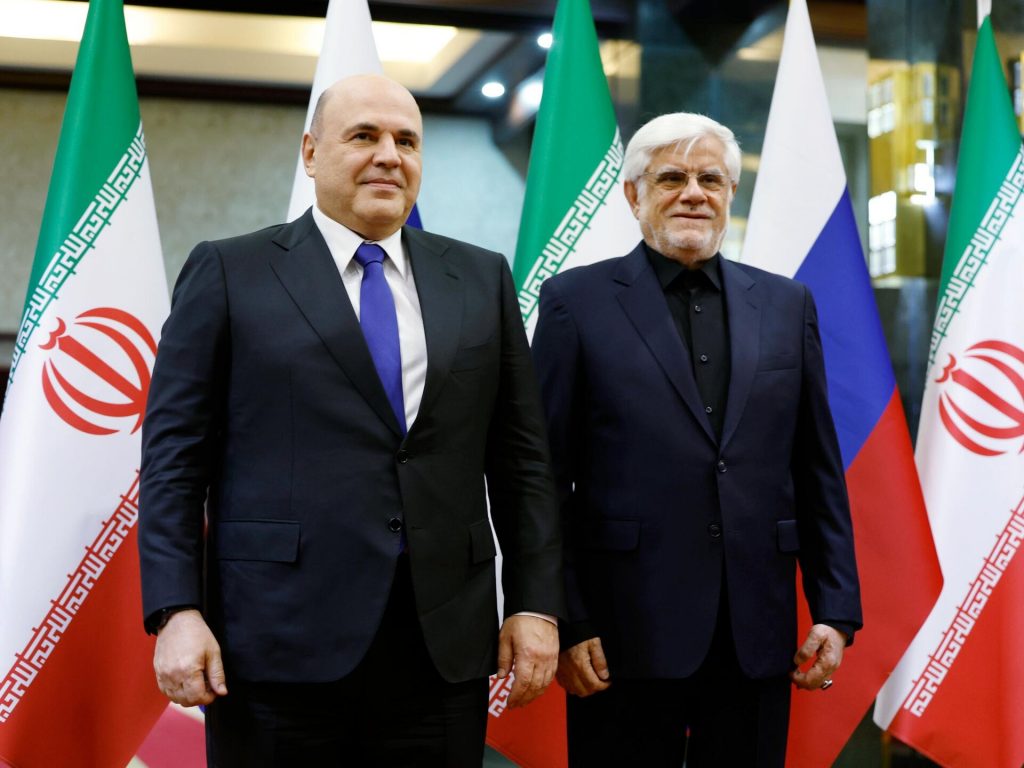
The past week in the Russian Federation was characterised by two main moments – the development of an attitude to the Middle East crisis and a bid for internal restructuring of the Russian elite system.
The aggravation of the situation in the Middle East is not only a big problem for the coexistence of the states of the region. It is also a challenge for the states that have their own interests in the region, in particular, for Russia. Obviously, Russia is clearly playing on the side of Iran and Syria, its most important partners in the region. Russia is also trying its best to maintain relations with the Arab world, demonstrating that its sympathies are not on the side of Israel. However, to some extent Russia is interested in a ‘controlled escalation’ of the situation: this could lead to a sharp rise in oil prices on world markets. ‘Controlled escalation’ is exactly what the US and its allies, who are particularly sensitive to price jumps on the oil market, would not want to allow.
Obviously, the Middle East issue has become dominant today, and from the Kremlin’s point of view, it is even higher in priority than the ‘Ukrainian issue’ (there is no progress in diplomatic terms, in military terms Russia has a tactical advantage over the AFU, many issues related to Ukraine have been postponed until understanding how the meetings of the leaders of the US, UK, France and Germany will go, as well as the next ‘Ramstein’).
The visit of Russian Prime Minister Mikhail Mishustin to Iran, following a series of reciprocal visits by Iranian and Russian dignitaries, shows that the issue of deepening co-operation with Tehran is a priority: the success of Russia’s foreign policy game in the Middle East will depend on how seriously it will be able to counter the Israeli response to the firing of Iranian missiles into Israeli territory.
It is obvious that Russia and Iran are plotting some kind of asymmetrical game against Israel (all things considered, Russia is not interested in Netanyahu’s departure in Israel – he is, from the Kremlin’s point of view, too convenient and too predictable a partner; Russia also realises that the loss of controllability of the conflict could lead to Turkey and Saudi Arabia beginning to play too independent a role in the region, and this is extremely disadvantageous for Russia).
It is interesting that Iran’s massive missile attack on Israel was demonstrative: most of the missiles did not carry explosive charges, and the firing itself was intended to show two main points: a) Iran can bypass Israel’s Iron Dome system (its ineffectiveness was shown); b) Iran has the ability to use Russian satellites to guide missiles to targets in Israel. We will soon see to what extent Iran’s signals were correctly understood in Tel Aviv.
As for the internal reorganisation of the Russian Federation’s class system, the appointment of Artem Zhoga, one of the field commanders of the so-called ‘DNR’, as plenipotentiary representative of the Russian president in the Urals Federal District is significant: firstly, Putin makes it clear that a new elite stratum is being formed in Russia – veterans of the [so-called] ‘SVO’ (Zhoga’s son Vladimir died in March 2022 near Volnovakha, Artem himself commanded the ‘Sparta’ battalion). In late 2023, Artem Zhoga was the one who officially ‘nominated’ Putin for the presidency (Putin announced his intention to officially run for president while answering Zhoga’s question). It was already said at the time that Putin might in the future rely on veterans of the [so-called] ‘SVO’ as the new elite.
Second, this appointment shows that from the Kremlin’s point of view, the ‘new regions’ are no longer perceived as something alien and second-rate. Previously, of all the nominees from this region, only Dmitri Trapeznikov, who briefly served as ‘head of the DNR,’ was able to continue his career in Russia, and that in secondary roles (head of the Elista administration, deputy chairman of the government of Kalmykia). But Trapeznikov is a native of Krasnodar. And in this situation, we can expect that a significant number of Donetsk, Luhansk, Zaporozhye and Kherson activists may be appointed, not to mention the large number of officials who have been through the war in Ukraine. This layer could become the reserve that will replace the current elite.
What is indicative: Zhoga’s appointment was very cautiously received by many of the current ‘pillars of power’ in Russia, as it sets a dangerous (for them) precedent. Putin is betting on those who have been tested by the war, and this is fraught with consequences for those who were with Putin before the war.

